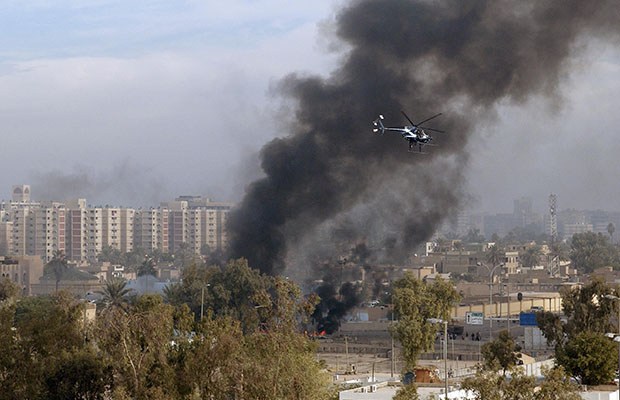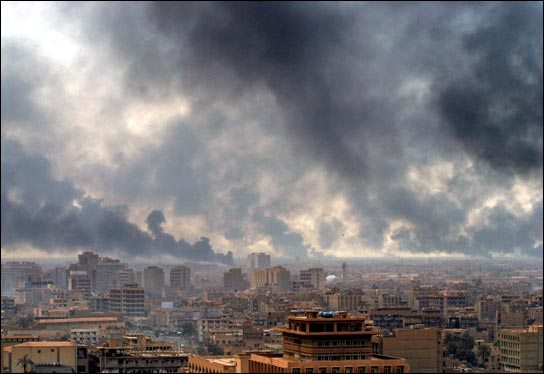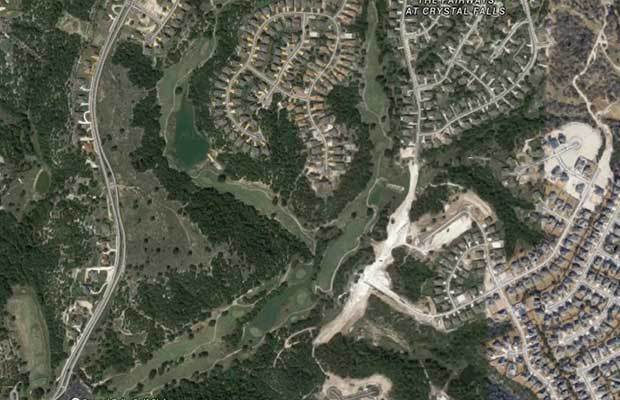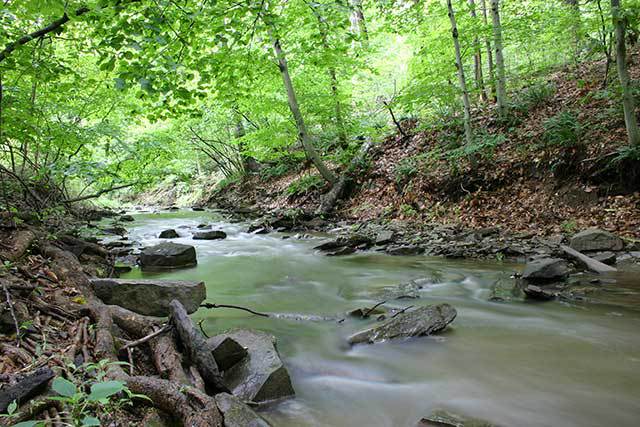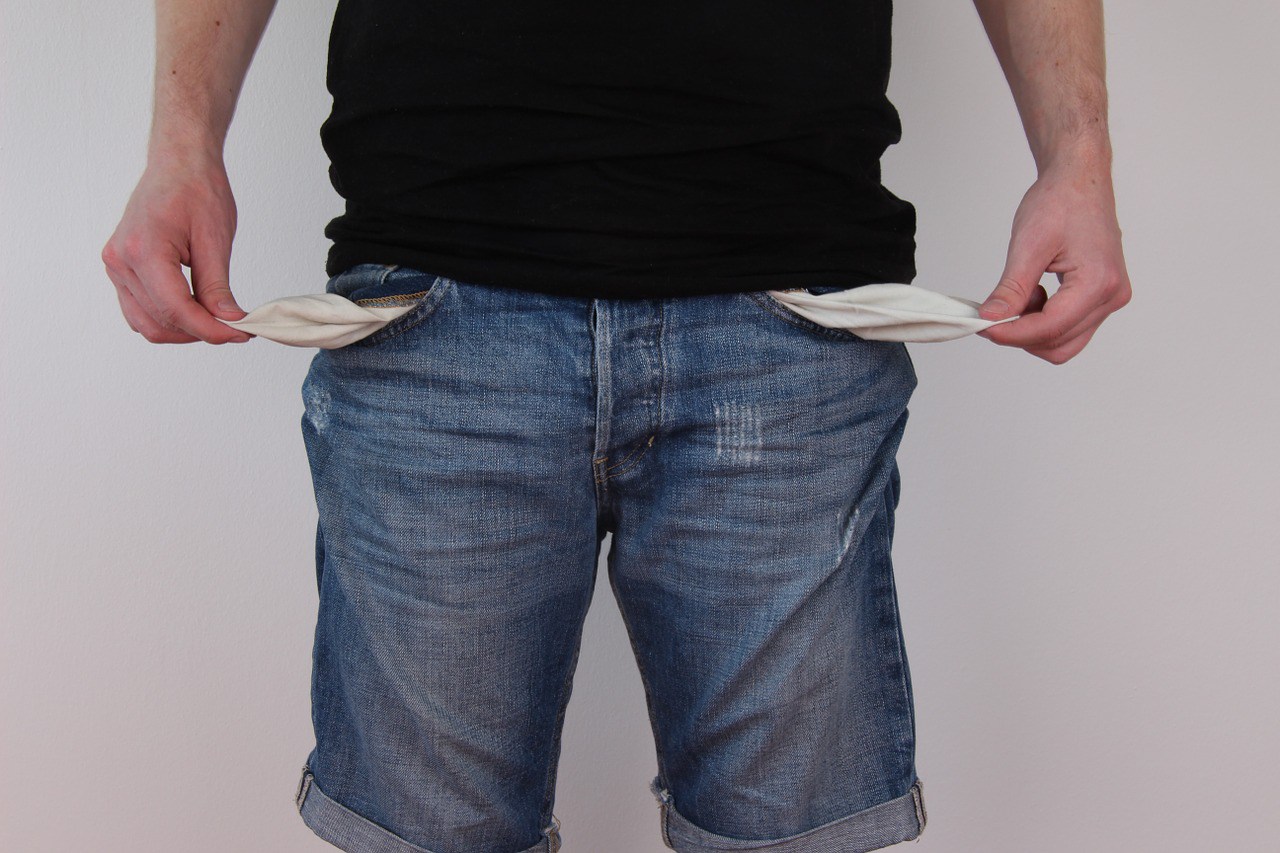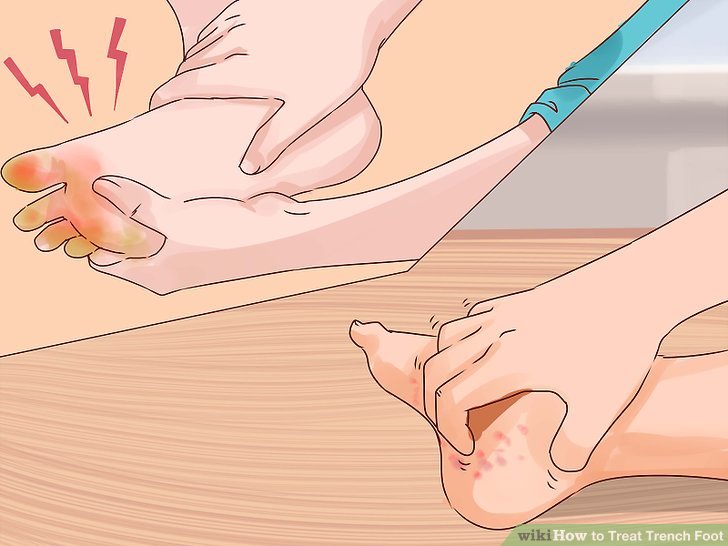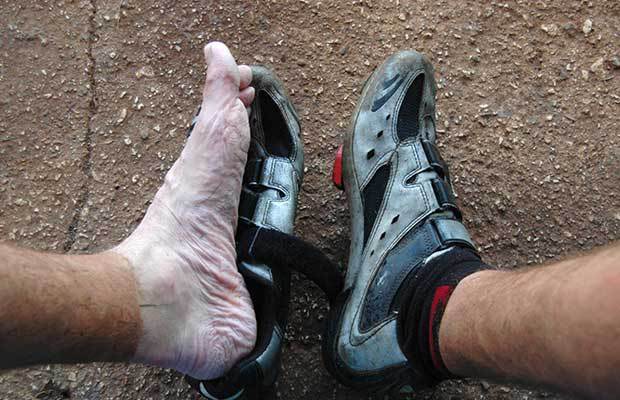One only has to watch the news during a holiday weekend or a severe storm event to image the difficulty bugging out using the interstate highway system. Even secondary country roads, while perhaps more practical, may either be less than ideal or could present even a more hazardous situation for a number of reasons.
But, making the decision then to hoof it with your gear and your family might be a death warrant, just waiting to be issued-(especially if your living in the desert southwest with triple digit temps).
However, there is another highway to consider: The Watery highway.
You could conceivably bug out by boat if you live within a short drive from the coast, lake, large river or even stream. Before you throw in with Gilligan and the Skipper though, here are some things to consider.
Geographical Location and Destination
Where you live or perhaps what body of water is closest to your location that you can get to quickly and safely reach will be a key factor in determining what kind of boat to consider.
You also need to consider your destination or if you plan to keep moving from location to location. Are there islands especially isolated ones with perhaps a cover where you can retreat to? You would need to select one with good protection from storms; you will need one that offers concealment and also good visibility in case of unwelcome visitors. Finding one that has a fresh water supply and small game is ideal. And don’t forget, streams, rivers, lakes and oceans are usually abundant with food.
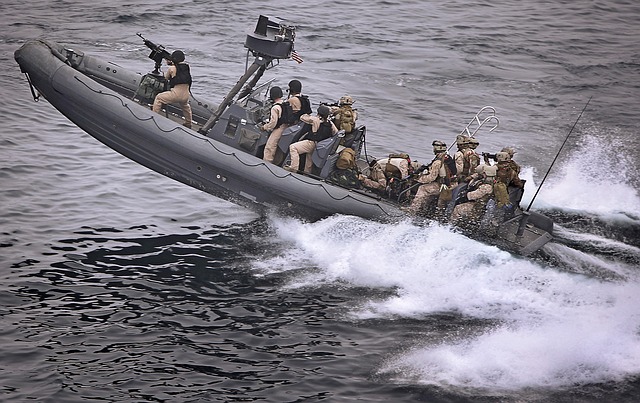 Maybe we don’t get our own stick of Special Forces operators, but a boat could be a great option for many preppers.
Maybe we don’t get our own stick of Special Forces operators, but a boat could be a great option for many preppers.
Yet, another thing to consider is the watery highway you plan on using. For example, I live near the Colorado River. I might consider a sailboat as my main bug out vehicle. But I would not be able to navigate the entire river in such a craft. A rubber raft or kayak would be more practical if I had to traverse the entire length.
That is why it is best to plan for many different type of bug out scenarios. But remember, you must practice your plan, refine it as required and remember all your prepping plans must be flexible so you can adjust to any current situation.
Reconnoiter before you Bug Out by Boat
No matter what body of water you are considering, you need to take the time to scout the land and get to know the land on either side of it. It is vital to know where there are places you can hide; places where you can bring a boat close to shore-so you can gather water, hunt wild game, dig up supplies that you buried earlier or tend to a prepper garden or even camp. Location landmarks, or build some that you can spot from the water. Have a nautical map with you so you can transfer the information to it. Remember that landmarks can look different from the water especially at night or bad water conditions. Create or convert a get home bag to a going ashore bag.
Depending on the intended use-you only would need a limited amount of supplies and tools unless you are planning or forced to hunker down on land for an extended period of time.
What will the costs be?
Some may dismiss the idea of using a boat for a bug out vehicle because of costs. In this day and age, especially in this economy, you can purchase a sail boat with a shallow draft with trailer in reasonable condition for about the same price of a used car or perhaps a bit more. Plus remember that a boat can also be used and should be used for vacations. Why not combine a weekend get a way with prepper training. The more training your crew has the easier it will be when that SHTF HAPPENS.
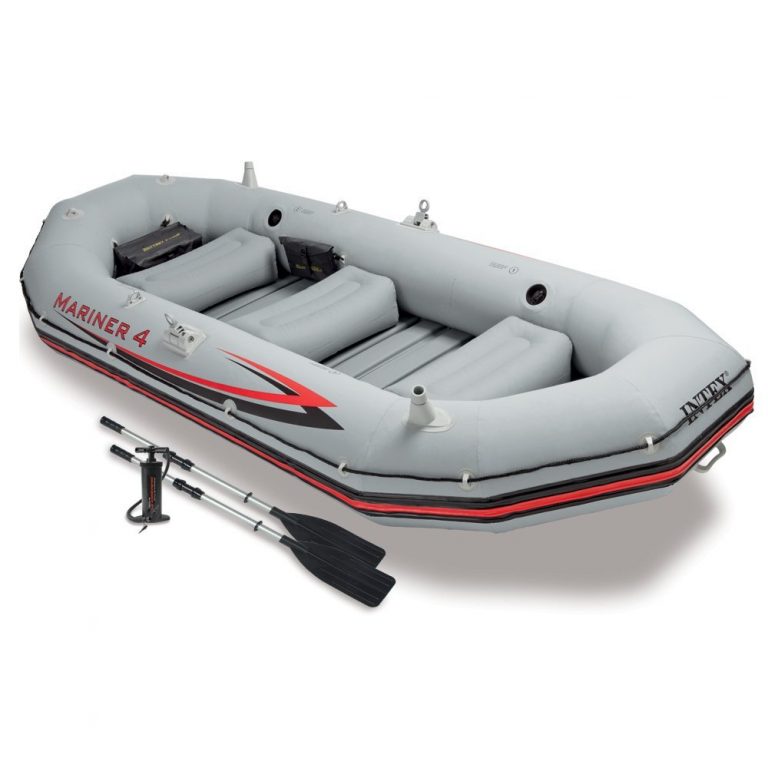
Something like this 4-Person Inflatable Boat Set with Aluminum Oars and High Output Air Pump could give you a bug out advantage if you live near a waterway.
Still one has to be careful not to purchase something that will become a money pit. There are numerous videos on you tube and books available to guide you in the purchase process. There are tax advantages to consider and many banks offer boat financing.
In addition, depending on your situation, you should also consider purchasing a rubber raft or kayak. Both are perfect for fishing, scouting and going places where you main craft are unable to go.
Maintenance for your boat
Boats like recreational vehicles can be costly if not properly maintained. Yet, with a little knowledge and foresight, you can carry spare parts, fiberglass patch kits and make many repairs while on the run. Look at it this way, if you are considering buying some land in a remote area, building a cabin, hauling in water and supplies-the idea of a boat that already has a cabin, can carry your supplies and fresh water. It is also mobile which means you have a chance to sail away to another area if your current location becomes too dangerous- the cost factor might start to become more attractive.
What Equipment do you need for your boat?
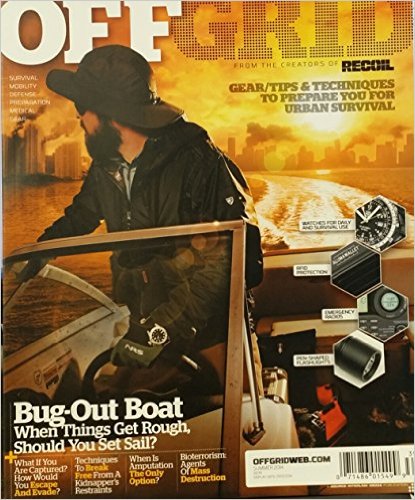 OFFGRID by Recoil SUMMER 2014 Bug out boat/Urban Survival issue
OFFGRID by Recoil SUMMER 2014 Bug out boat/Urban Survival issue
Boats are self sufficient or can be for longer periods of time. While this statement is factually true. It depends on the boat you have. A kayak or small fishing boat would not be equipped with all the bells and whistles. The larger boats such as a sail boat can be equipped with a full kitchen, redundant power systems to include generators, solar power and wind turbines. Showers, sewage systems, radar, GPS, marine and ham radios, televisions, freezers, ice makers as well as a water maker which turns salt water into fresh water. It can also filter fresh water. A huge bank of batteries could also be installed and used to provide power without depending on the boats main engines and fuel supply.
However no matter what type of craft you decide on. You should also make sure you have the following.
Life Jackets: While required by law, these are essential for all passengers in a boat. Your attention will be focused on moving from point A to Point B. A child could easily fall overboard. Expect the unexpected and think safety.
Water tight containers: Used to carry your food, fresh water supplies, extra clothing, prepaid cell phones, weapons, ammo, tools- everything you need to protect from the water or bad weather. You should also have a supply of plastic trash bags, zippered sandwich or freezer bags for dry storage.
You also need to carry rope, first aid kit, pocket knife, insect repellent, spare parts and even a spare paddle.
Plastic Bail out buckets, beach towels or large sponges: Besides bailing or mopping up water, these items have many uses both on and off the boat.
Portable toilet, some type of reusable system along with toilet paper, small paper bags, a normal size coffee can and a separate container with a toilet chemical. Being on the move may require you to wait until a later time to get rid of such waste. Therefore, you can use the paper and or plastic bags to hold the human waste and used toilet paper and seal it up in the coffee can (s) until such time you can dispose of it properly. Remember, in proper disposal can be a clue to others that you are in an area or point out what direction you are traveling. Be sure to take the time to dispose waste properly.
One might think that preppers should not consider such luxury. But, I disagree. Your job is not only to survive and keep your family safe. If you have to bug out for a long period of time and can provide your family with a normal sense of life’s conveniences psychologically you are increasing your chances of survival, reducing fear, anxiety, and the breakdown of the family unit. Ask yourself this, if you build a cabin, what basic conveniences would you spouse demand that it come with. Ask yourself, How long would it be before the kids start to rebel. The right boat purchase, if practical for your area and bug out plan, would have many if not all of these options and may help convince your spouse to agree to the purchase.
Security on your boat
There are pros and cons to strongly consider before buying a boat. Your geographical location, the waterway you plan to navigate. Is the boat primary for transportation or are you going to live on it. You and your crew would need to stay vigilant. A watch program and or a drone scout would be practical requirements to keep marauders, pirates, or others away from you, your family and your boat.
A larger amount and a larger variety of weapons and ammo can be carried on a boat. However, again being out on a boat, you could be exposed. Watchers on shore, in buildings, on other boats could spring a trap and track you to your final location..
Weather and other dangers
Boating can dangerous. Your exposure to heat, humidity, adverse weather conditions, bugs, mosquitoes, snakes, water lice, leeches can quickly cause illness or even death. Objects in the water, logs, reefs, junk, could damage or even sink your boat. Proper training and education, practice trips, proper first aid kits and training would help minimize the threat level. Anytime and especially during a bug out situation, boats and boaters will most likely face some unique hazards that one may have experienced in the past during normal outings.
Exposure: Being out on the open water, you and your craft will be highly noticeable. There will an ever threat from marauders, pirates, or others. You could find yourself in a sudden fight or flee situation. It will be important to gauge your travels based on many of the concerns listed above.
Hidden dangers: If you have the opportunity, make trial runs to become familiar with your planned and un-planned routes. Mark known or potential hazards on your map and be sure to have a back up map. In addition assign a member of your crew as a spotter. Have them watch for V-shaped patterns on the surface of the water. This could be an early warning of stumps, sandbars, branches or other objects that are under the surface and could damage your boat or cause an accident that might cause injury to a crew member.
Where ever possible, scout the shoreline as part of trial runs. Know where someone could hide a boat and set up an ambush or fasten a chain or heavy cable across a river or narrow opening.
Noise discipline
Sound travels over water. You and your spotter need to not only watch for hazards, you need to listen for them too. In addition, you, your boat and your crew need to practice noise discipline. It must become second nature.
This also applies anytime you leave your craft to make excursions on land. Being a gray man out on the water or in a boat is much harder than in an urban or rural setting. But, it can be done with practice and being aware of your surroundings at all times.
There is no law that states that being prepared cannot also be a way of bonding and creating wonderful memories for you and your family. Boating is a great way to get your family accustom to outdoor activities, living off the land, and having prepping become second nature.
One only has to watch the news during a holiday weekend or a severe storm event to image the difficulty bugging out using the interstate highway system. Even secondary country


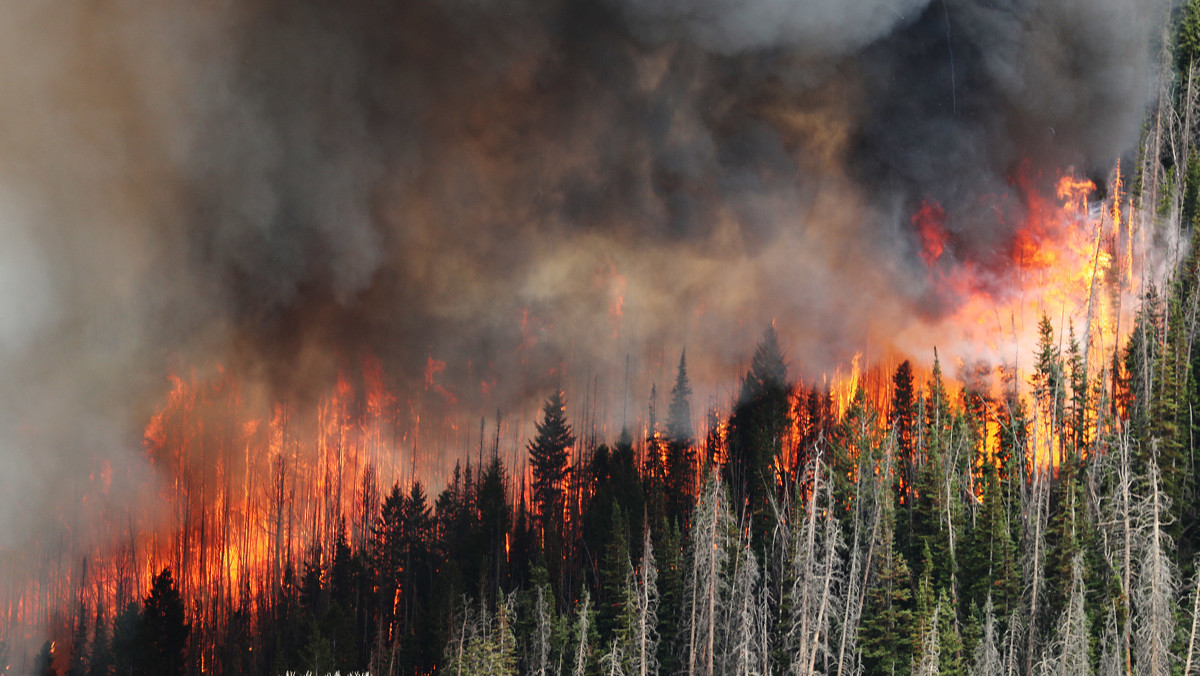
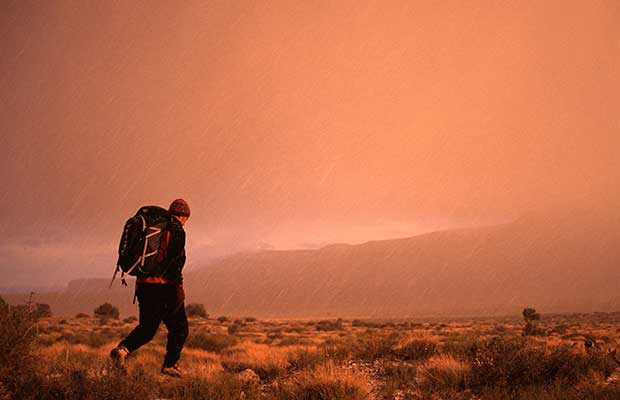
 Some parts of Mother Nature are best appreciated when you can leave.
Some parts of Mother Nature are best appreciated when you can leave. If the people in the town do not know you, they will treat you as suspicious, maybe even hostile.
If the people in the town do not know you, they will treat you as suspicious, maybe even hostile.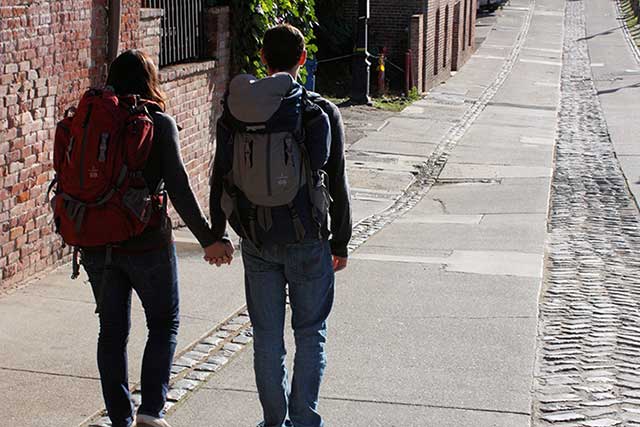 Leaving home may put you in a worst situation than staying put.
Leaving home may put you in a worst situation than staying put.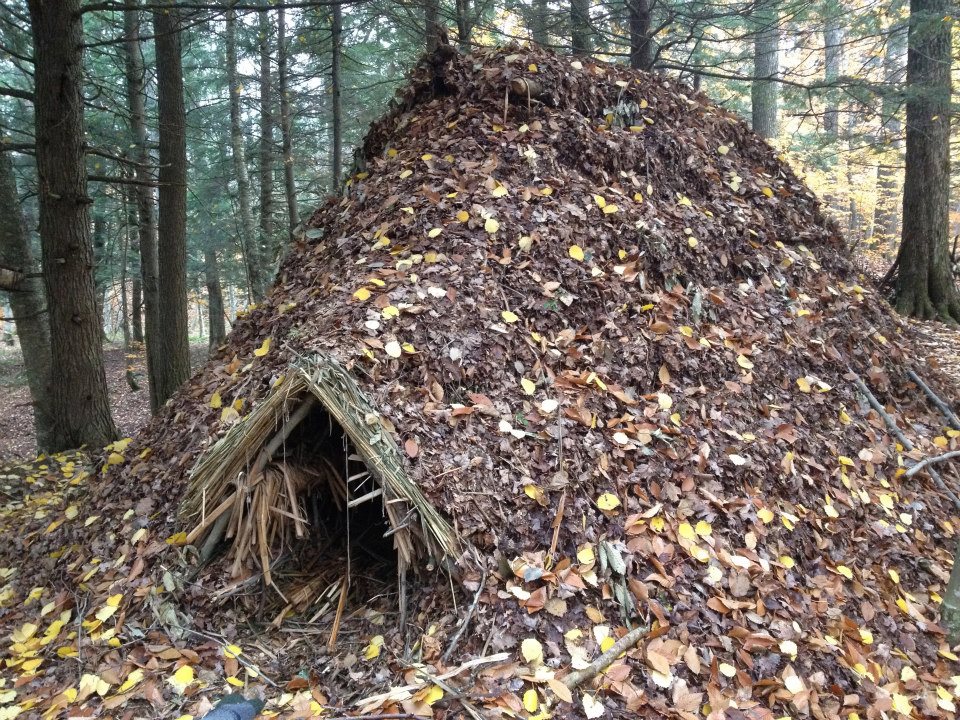





 Maybe we don’t get our own stick of Special Forces operators, but a boat could be a great option for many preppers.
Maybe we don’t get our own stick of Special Forces operators, but a boat could be a great option for many preppers.
 OFFGRID by Recoil SUMMER 2014 Bug out boat/Urban Survival issue
OFFGRID by Recoil SUMMER 2014 Bug out boat/Urban Survival issue
 1200 FPS with a scope for less than $140.
1200 FPS with a scope for less than $140. 880 air rifle kit includes safety glasses, 4×15-millimeter scope with rings, 500 Daisy pellets, and 750 BBs – $60
880 air rifle kit includes safety glasses, 4×15-millimeter scope with rings, 500 Daisy pellets, and 750 BBs – $60 Velocity of up to 1,200 fps with PBA Raptor ammunition; 4×32 air rifle-scope – $99
Velocity of up to 1,200 fps with PBA Raptor ammunition; 4×32 air rifle-scope – $99